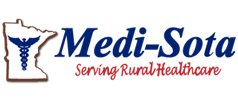S.T.A.B.L.E Newborn Transport
Via Webinar Only - Recording is NOT Avaialable.
Description
S.T.A.B.L.E. stands for Sugar, Temperature, Airway, Blood Pressure, Lab Work, and Emotional Support. All hospitals providing labor & delivery services need to be prepared for when a newborn becomes sick and requires transport. Before arrival of the transport team, community hospital caregivers should anticipate, promptly recognize, and effectively correct problems as they arise. The goal of all transport teams is to move with a well-stabilized infant, which helps minimize the chance that adverse events occur that may contribute to morbidity or lead to mortality. This program is designed to help community hospital caregivers organize care during the pre-transport stabilization period. There are numerous instructional materials and resources available for specific problem management, many of which will be included in the manual. This program is not intended to re-create instructional materials but to augment nursery education programs and serve as a straight forward and comprehensive guide for stabilizing a sick infant for transport.
Key Learning Objectives:
-
* Sugar - Identify neonates at risk to become hypoglycemic; and initial steps to treat hypoglycemia (i.e., with IV fluids, initial IV therapy and safe use of umbilical lines).
* Temperature - Describe the normal response to cold stress, detrimental effects of hypothermia, techniques to prevent hypothermia and appropriate candidates for therapeutic/neuroprotective hypothermia.
* Airway – Recognize neonatal respiratory distress and/or respiratory failure, describe how to assist with endotracheal intubation and securing an ET tube, interpret blood gases and identify at least one appropriate treatment option for an abnormal blood gas.
* Blood pressure – List the causes and treatments for hypovolemic, cardiogenic and septic shock and describe abnormal features of the physical exam that may be indicative of shock.
* Lab work – List at bacterial and/or viral pathogens that may infect the neonate, describe signs of neonatal sepsis and discuss one significant finding on a complete blood count (CBC) for an infant suspected of sepsis.
* Emotional support – Identify potential emotions that parents might experience when their newborn requires intensive care or transport and list interventions give support during a crisis.
Who Should Attend: Providers, nurse midwives, RN’s, LPN’s, Respiratory Therapists, EMT’s, and Paramedics.
Instructor: Jill Bauer, MA, RNC and Magdalene Anderson, NNP
***Participants must have a current book that can be found at www.stableprogram.org** All modules will be discussed in the presentation and a post-test will be given upon completion
Continuing Education: Clock Hours: 8.0
This workshop is designed to meet the continuing education requirements for the MN Board of Nursing. It is the responsibility of the attendee to determine whether these activities meet the current criteria for continuing education.
All registrants will receive course information, connection details, & any materials prior to the session.
Registration Fees:
Medi-Sota Members: $35 / Person
Non-Medi-Sota Members: $65 / Person
Cancellations must be made no later than 15 business days prior to the course. The full course fee will be charged if cancellation is made in less than 15 business days. Full refunds will be given for all classes cancelled by Medi-Sota. Registration is transferable to another person.

